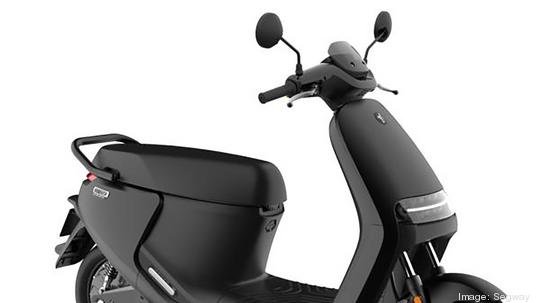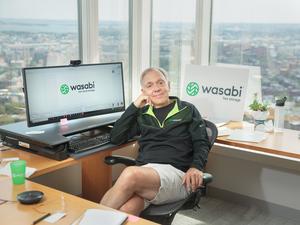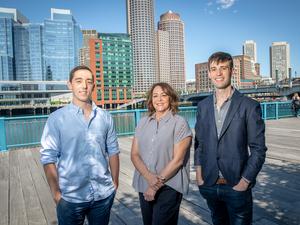
Segway became famous for the two-wheeled, self-balancing transporter that bears its name. Now, the company is undertaking a cross-country campaign, that recently stopped in Greater Boston, to promote new products it says allows for sustainable, urban travel.
The company first rolled out its premier product, the Segway PT, in 2001 after founder and inventor Dean Kamen spent years secretly developing the personal transporter in a New Hampshire facility. In 2020, Segway announced the end of production on the Segway PT and a renewed focus on other products, like its scooters and e-mopeds.
Segway has closed its facility in New Hampshire, according to VP of sales and marketing Tom Hebert, and is betting on a future in micro-mobility technology — just not in the product that its name has become synonymous with.
A quick history
The world waited with anticipation for news from New Hampshire. Word had been spreading for months that Kamen, who had previously invented a drug infusion pump and the first portable dialysis machine, was developing a new invention that would change the world. The news came from a book proposal that Kamen had sold to the Harvard Business School, Slate reported. The proposal didn't say what the product was.
No one knew what Kamen’s new invention was until he announced Segway’s product on Good Morning America in the fall of 2001.
“I’m tempted to say, that’s it?” a host said after seeing the Segway PT.
In the book proposal, Steve Jobs said Kamen’s invention would be “as significant as the personal computer.” Jeff Bezos used the word “revolutionary.”
In reality, Segway PT sales performed rather poorly. The transporter, which cost a few thousand dollars per unit, became associated with the tourism and security industries, but never achieved wide public adoption. Fast Company reported that the company only sold 140,000 vehicles before retiring the Segway PT in 2020.
Segway was acquired by a UK-based firm in 2009 and then by the Chinese mobility company Ninebot in 2015. The company’s headquarters is now in Los Angeles, Hebert said, and the New Hampshire facility was sold around two years ago.
Sign up for The Beat, BostInno’s free daily innovation newsletter from BostInno reporter Hannah Green. See past examples here.
Betting on new forms of transport
Segway’s trip down the East Coast is the third annual installment of its summer tour across America. The company will be making stops in cities from Niagara Falls to Miami, including a recent stop in Everett, Mass., to show off its new product.
The E110A is an e-moped with a top speed of 30 mph and an approximately 35-mile range. It charges by plugging into a wall outlet. Segway rolled out and started shipping the E110A about four weeks ago, Hebert said.
Hebert said sales have grown rapidly at Segway over the last few years as people looked for new forms of solo transportation during the Covid-19 pandemic.
“You can rely on (our products) to get you wherever you’re going, but it’s also sustainable,” Hebert said. “It’s really those two key factors that helped put our business on a skyrocket the last two years.
Segway is the exclusive provider to Costco and Sam’s Club, Hebert said, and also sells its products through Walmart, Best Buy, Target and other retailers.
Despite the scoffs some might make about the early Segway PT and its lack of adoption, Hebert said that technology was the basis of many micro-mobility products today.
“This isn’t just a new business for us. It’s something that we’ve invested in for a long time,” Hebert said. “Our PT business … is a business that frankly was ahead of its time when that was launched and the technology that was involved in that legacy business was phenomenal.”
Hebert said Segway’s mission today is to bring that technology to average consumers through its new products.
“While the PT business was a very niche business, what we’re doing is something that the everyday consumer is going to be able to really enjoy, have that thrill, know that it’s going to be reliable, and at the end of the day, it’s sustainable,” Hebert said.







